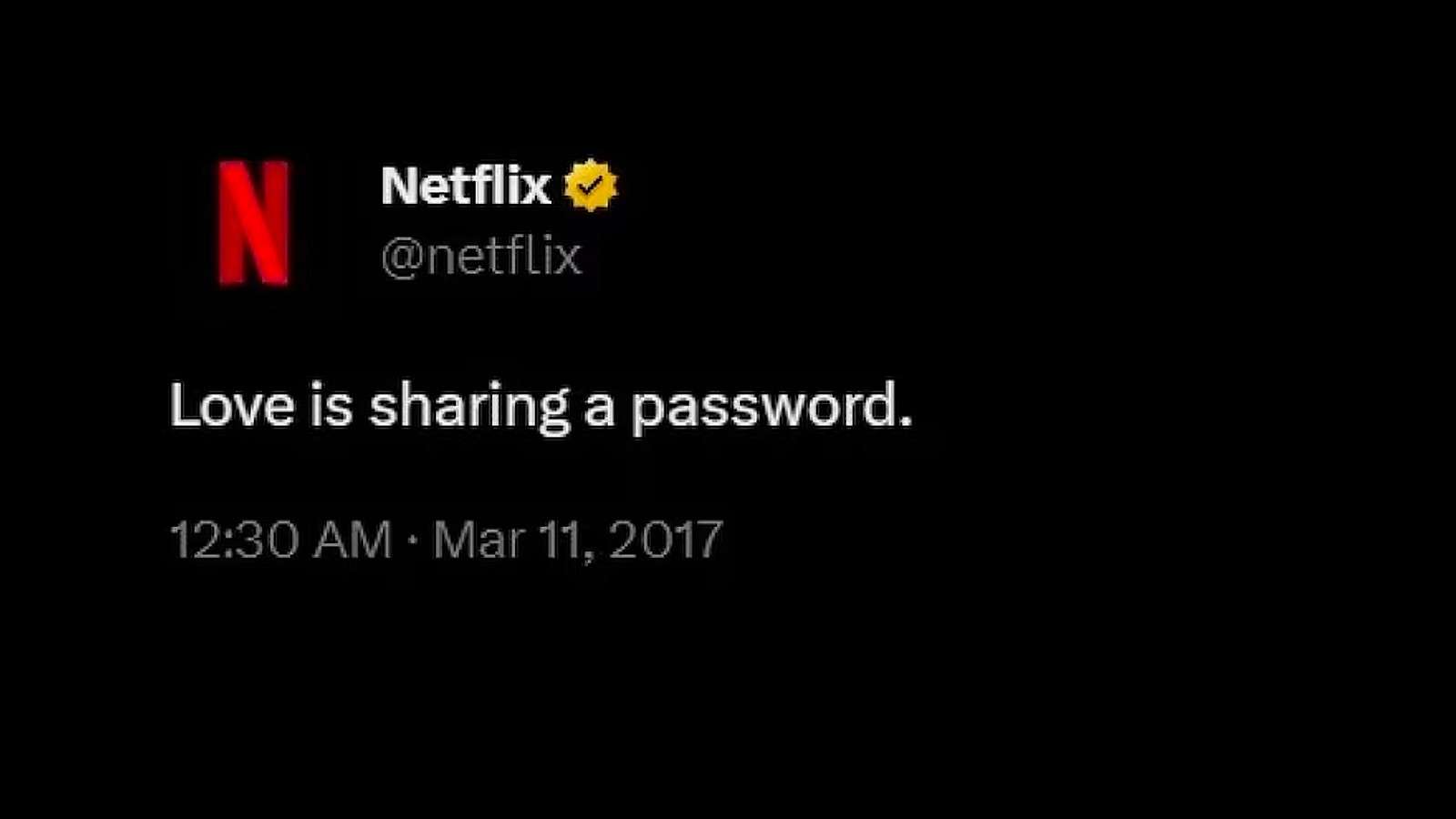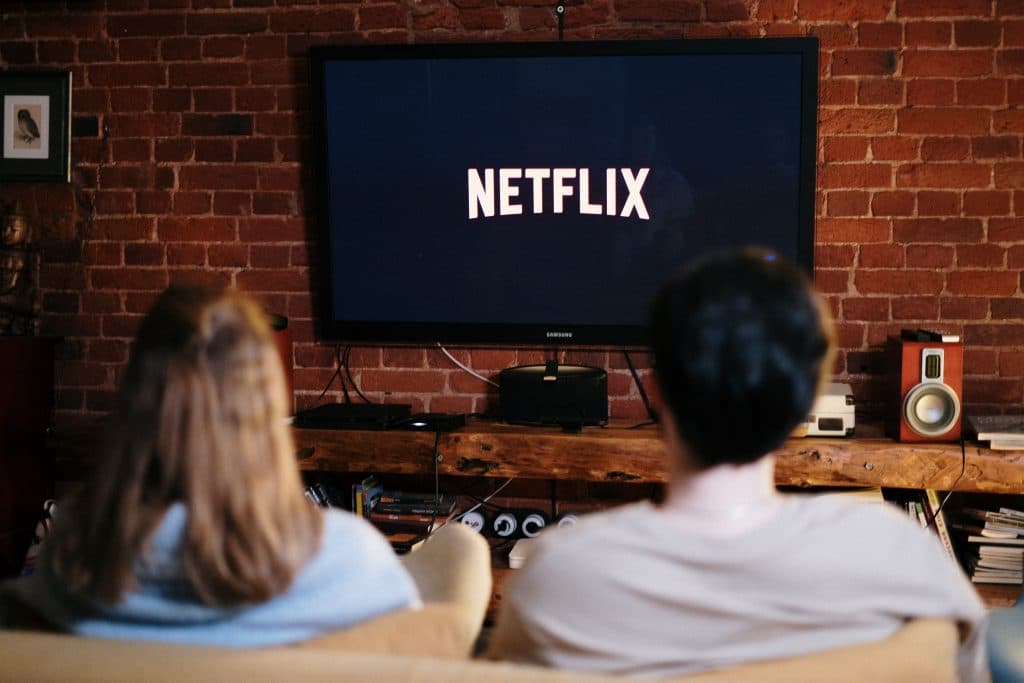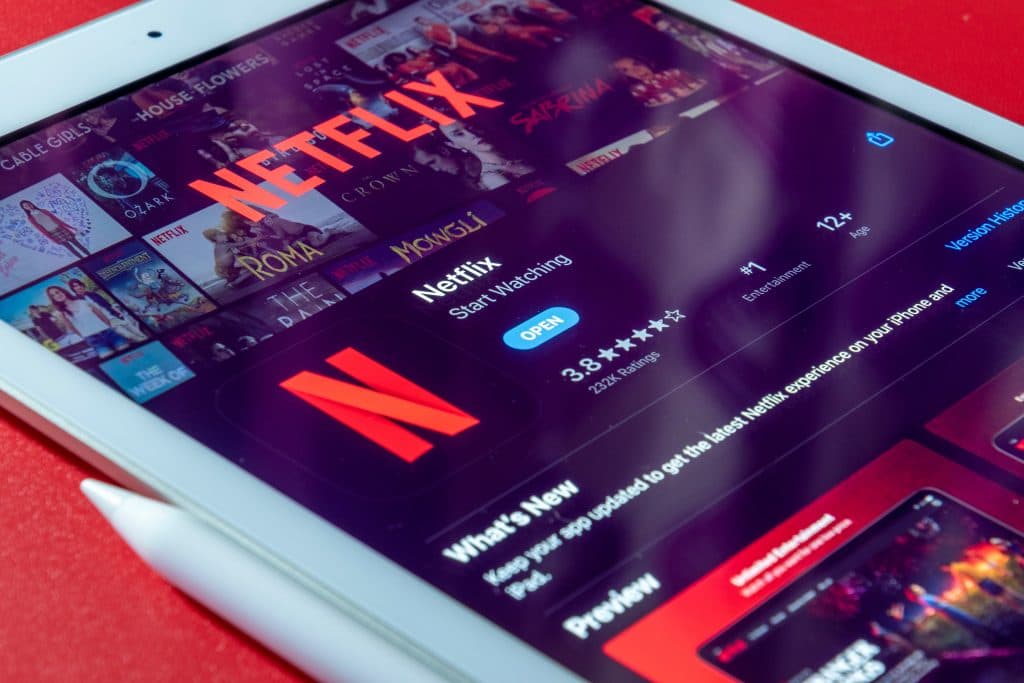Netflix password crackdown: Rules and prices explained
 Netflix
NetflixNetflix has tightened up on password sharing, suggesting new challenges for users. Learn more about the new rules, enforcement methods, and the associated costs.
From the dawn of Netflix, friends and family have been using each other’s passwords. It’s a rite of passage; at the heart of every subscription service, there’s one poor sod paying for everyone else’s free ride.
It makes sense: if you trust someone, why wouldn’t you let them use it? In 2017, Netflix’s X account even wrote, “Love is sharing a password.”
Alas, after months of threats many thought to be empty, the streaming service has cracked down on password sharing, with Disney Plus to follow — it will be a headache. Here’s what you need to know about the new rules, how they’ll work, and how much it will cost to share.
Netflix password-sharing crackdown and rules explained
Contents
- When is Netflix stopping password sharing?
- Who can I share my Netflix password with?
- Will Netflix enforce a password-sharing fee?
- How will Netflix enforce its anti-password-sharing rules?
- How to avoid Netflix blocking your account
- Can I still use Netflix while traveling abroad?
- Can you beat Netflix’s password-sharing rules with a VPN?
When is Netflix stopping password sharing?
Netflix’s password-sharing crackdown went into effect in the US on May 23, 2023.
 Pexels
PexelsAlongside the new options for sharing outside of households, Netflix wrote, “Starting today, we will be sending this email to members who are sharing Netflix outside their household in the United States.
“A Netflix account is for use by one household. Everyone in that household can use Netflix wherever they are – at home, on the go, on holiday – and take advantage of new features like Transfer Profile and Manage Access and Devices.”
Who can I share my Netflix password with?
You can share your Netflix password with anyone in the same household. Per the company’s FAQs, “People who do not live in your household will need to use their own account to watch Netflix.”
So, for the sake of simplicity, we’ll use the example of a family account. If all family members live at home, they can log into Netflix and access their profile without worry.
What if you’ve moved out, traveling abroad, or want to watch Netflix in a hotel on holiday? You’ll still be able to but you may need to verify your device.
How much will Netflix’s password-sharing fee cost?
If you want to allow others to keep using your account, it will cost you an extra $7.99 per month, per person.
Netflix extra member or profile options:
- Transfer a profile, meaning anyone on your account who doesn’t live in your household can transfer their Netflix profile over to a new account and start paying the regular subscription fee themselves
- Buy an extra member, meaning you can share your account with someone who doesn’t live with you for an additional $7.99/£6.45 monthly.
Netflix subscription plans:
- Basic with Ads – You can watch on one supported device at a time. | $6.99/£4.99.
- Basic – Allows you to watch and download on one supported device at a time. | $9.99/£6.99.
- Standard – Allows you to watch and download on two supported devices at a time.| $15.49/£10.99.
- Premium – Allows you to watch and download on four devices simultaneously. | $19.99/£15.99.
So, if you do want to allow others to keep using your account, it’s going to cost you an extra $7.99 per month, per person – which doesn’t bode well for parents whose kids go off to college, for example, as they’ll end up paying nearly double.
Or you’ll have to boot off anyone who doesn’t live with you and get them to set up their subscriptions — on the plus side, the “transfer a profile” option means that any saved preferences and viewing history won’t get deleted.
How will Netflix enforce its anti-password-sharing rules?
Netflix can require you to verify your device if you log in outside your household.
In its Help Center section, the site wrote, “When someone signs into your account from a device that is not associated with your Netflix household, or if your account is accessed persistently from a location outside of your household, we may ask you to verify that device before it can be used to watch Netflix. We do this to confirm that the device using the account is authorized to do so.”
Netflix does this by tracking IP addresses, device IDs, and account activity from devices signed into each user’s account.
This process shouldn’t be too complicated: the primary account holder will be sent a four-digit verification code, which must be entered on the device within 15 minutes.
If it expires, you can request a new code, and once inputted, you can use that device to watch Netflix — it’s just like two-factor authentication.
This doesn’t clear the device for all future usage, and “device verification may be required periodically.”
How to avoid Netflix blocking your account
“To ensure uninterrupted access to Netflix, connect to the Wi-Fi at your primary location, open the Netflix app or website, and watch something at least once every 31 days,” the company wrote.
“This creates a trusted device so you can watch Netflix, even when you’re away from your primary location.”
So, let’s say you’re a student who’s moved out and living in a city thousands of miles away. If you go home every month and use Netflix, you’ll be fine — great, right?
Netflix said any account not associated “with the primary account owner’s household… will need to be verified before it can be used to watch Netflix. We do this to confirm that the device using the account is authorized to do so.”
Can I still use Netflix while traveling abroad?
According to Netflix, if you are the primary account owner (or live with them), you shouldn’t need to verify your device.
 Unsplash
UnsplashIf you’re away for an extended period, you may be asked to verify your device using the method above. Pop in the verification code, and you can access your account.
This is fine if it’s the primary account holder traveling, but it will be a pain having to text your mom or dad when you want to use Netflix on a hotel TV. Or, in the worst-case scenario, you try to log in to watch your offline downloads on a flight and are asked for a verification code.
Can you beat Netflix’s password-sharing rules with a VPN?
A VPN might help get around Netflix’s password-sharing measures, but it’s not a guarantee.
VPNs (virtual private networks) allow users to access Netflix content unavailable in their region, usually due to licensing issues. If you’re in the UK, you could watch US Netflix, and so on.
They disguise your IP address, so theoretically, a VPN could interfere with Netflix’s ability to pinpoint your device’s location.
Currently, Netflix says “You can use a VPN with Netflix on the Basic, Standard, or Premium plans”, but it’s unclear whether this will change.
You can read more about Netflix’s new password-sharing rules here.
Keep up with Netflix releases with our guides to the Wednesday season 2 release date, Beef Season 2, or Ginny and Georgia Season 3.
Please note that if you click on a product link on this page we may earn a small affiliate commission.



